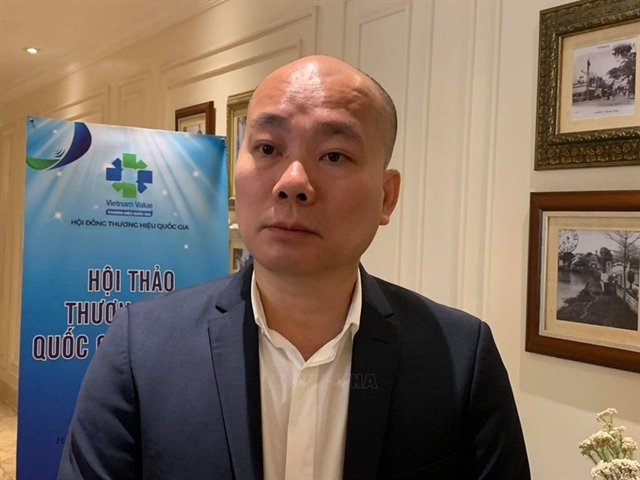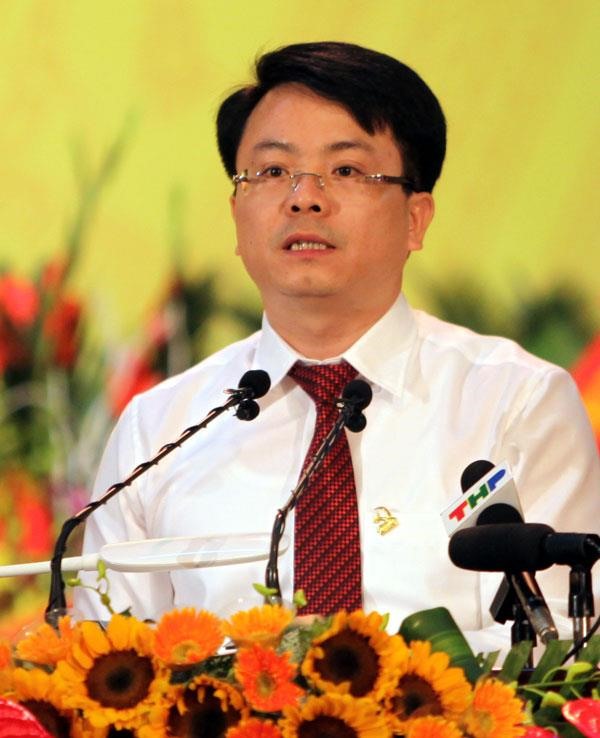 Talking Shop
Talking Shop

Over the last five years, Hải Phòng has developed a strategy to attract investment from corporations across ASEAN and build sustainable cooperative ties with them. Lê Trí Vũ, director of the Hải Phòng Investment, Trade, Tourism and Tourism Promotion Centre speaks to the Vietnam News Agency about the issues.
 |
Over the last five years, Hải Phòng has developed a strategy to attract investment from corporations across ASEAN and build sustainable cooperative ties with them. Lê Trí Vũ, director of the Hải Phòng Investment, Trade, Tourism and Tourism Promotion Centre speaks to the Vietnam News Agency about the issues.
How has the ASEAN Economic Community impacted the economic development of Hải Phòng?
ASEAN is considered the third largest economy in Asia, the sixth largest in the world, and one of the most dynamically developing markets. Increasing investment among ASEAN countries in general and from ASEAN to Việt Nam in particular has played a key role in the process of attracting foreign direct investment (FDI) for Việt Nam’s economic growth.
For Hải Phòng, the city has attracted some FDI projects from ASEAN countries, mainly from Singapore, Thailand and Malaysia. Of which, Singapore has made the largest investment in Hải Phòng, with nearly 30 projects, and total investment capital of US$700 million, ranking fifth among 36 countries and territories investing in the city.
One of the successful projects invested by ASEAN countries is the development of the VSIP Hải Phòng urban, industrial and service zone of VSIP Hải Phòng Co, Ltd. The Singaporean-invested company is one of the most efficient infrastructure firms in the city and its zone has attracted great investment from large corporations such as Nipro Pharma and Fuji Xerox.
Up to now, the zone has managed to fill more than 50 per cent of its area. In addition, some large investors doing business in ASEAN countries have gradually expanded their production and business in Hải Phòng.
To attract FDI from foreign countries in general and from ASEAN countries in particular, the city approved Hải Phòng’s strategy on attracting FDI in the period 2016-20 on January 4, 2017 and the investment promotion strategy in the period 2016-20 on February 2, 2017. Those strategies involve targets and measures in attracting investment from foreign countries and territories, including ASEAN countries, by 2020.
How has economic cooperation with countries in ASEAN pushed Hải Phòng to develop its advantages?
The infrastructure of Hải Phòng has developed rapidly, now boasting the largest seaport system in northern Việt Nam. The city is carrying out the investment project of Lạch Huyện deep-water port, which is the international gateway port of the North. It can receive 100,000-tonne ships, which is very convenient for the development of services relating to seaports.
Other large infrastructure projects will turn Hải Phòng into a centre for all export and import activities by enterprises in the North and nation wide. These projects include the Hà Nội - Hải Phòng expressway, Cát Bi international airport, Tân Vũ – Lạch Huyện road, Hải Phòng – Hạ Long highway and coastal roads.
Therefore, the city has advantages to attract foreign investors in the field of seaport services and logistics from Singapore.
In addition, Hải Phòng is one of the five centrally governed cities of Việt Nam with a population of about 2 million. Its urban population accounts for more than 46 per cent and the city is enjoying rapid urbanisation. This northern city is one of the most promising markets for investment in real estate, business and retail sectors from ASEAN countries such as Singapore and Thailand. Taking advantage of reduced tariffs among ASEAN countries, investors in the bloc have poured capital into Việt Nam, including Hải Phòng, by acquiring some FDI retail firms such as Metro and Big C to enter the retail market.
By taking advantage of geopolitical, cultural and cooperation opportunities between Hải Phòng and ASEAN countries, the city will promote the development of its strong fields, including the development of seaports, seaport services, infrastructure development, industrial real estate, coastal tourism and commercial activities.
How does Hải Phòng plan to attract more investment from ASEAN countries?
ASEAN is an important market so Hải Phòng is focusing on some key activities to attract more investment from ASEAN countries.
Hải Phòng will develop research and assessment of market potential, trends and investors from ASEAN neighbours that have already made large investments, such as Singapore and Thailand. Then, the city will develop plans to strengthen the confidence of existing investors and attract new investors to the region.
The city will build a database for investment promotion activities and enhance the operational efficiency of the city’s portal and website of the Hải Phòng Investment, Trade, Tourism and Tourism Promotion Centre. It will also provide information about the potential, strengths, and policies of the city for domestic and foreign businesses to help them fix investment targets and projects for the city.
In addition, it will continuously review, adjust and build a list of sectors calling on investment to create favourable conditions for foreign investors, including ASEAN enterprises. Investment attraction will focus on sectors with advantages such as high-tech agriculture, infrastructure, construction materials, consumer goods, food and automobiles (for Thailand); real estate business, manufacturing, manufacturing, construction and logistics (for Singapore).
The city will have more investment promotion activities in key markets of ASEAN countries and promote air routes linking Cát Bi airport with other regional airports, firstly launching flights to Singapore.
It will pay attention to the training of qualified human resource in the field of investment promotion.
Hải Phòng will give support to investors during the development of projects and promote dialogue between municipal authorities, enterprises and investors to solve difficulties they face during investment, production and business activity in the city. - VNS

.jpg)


